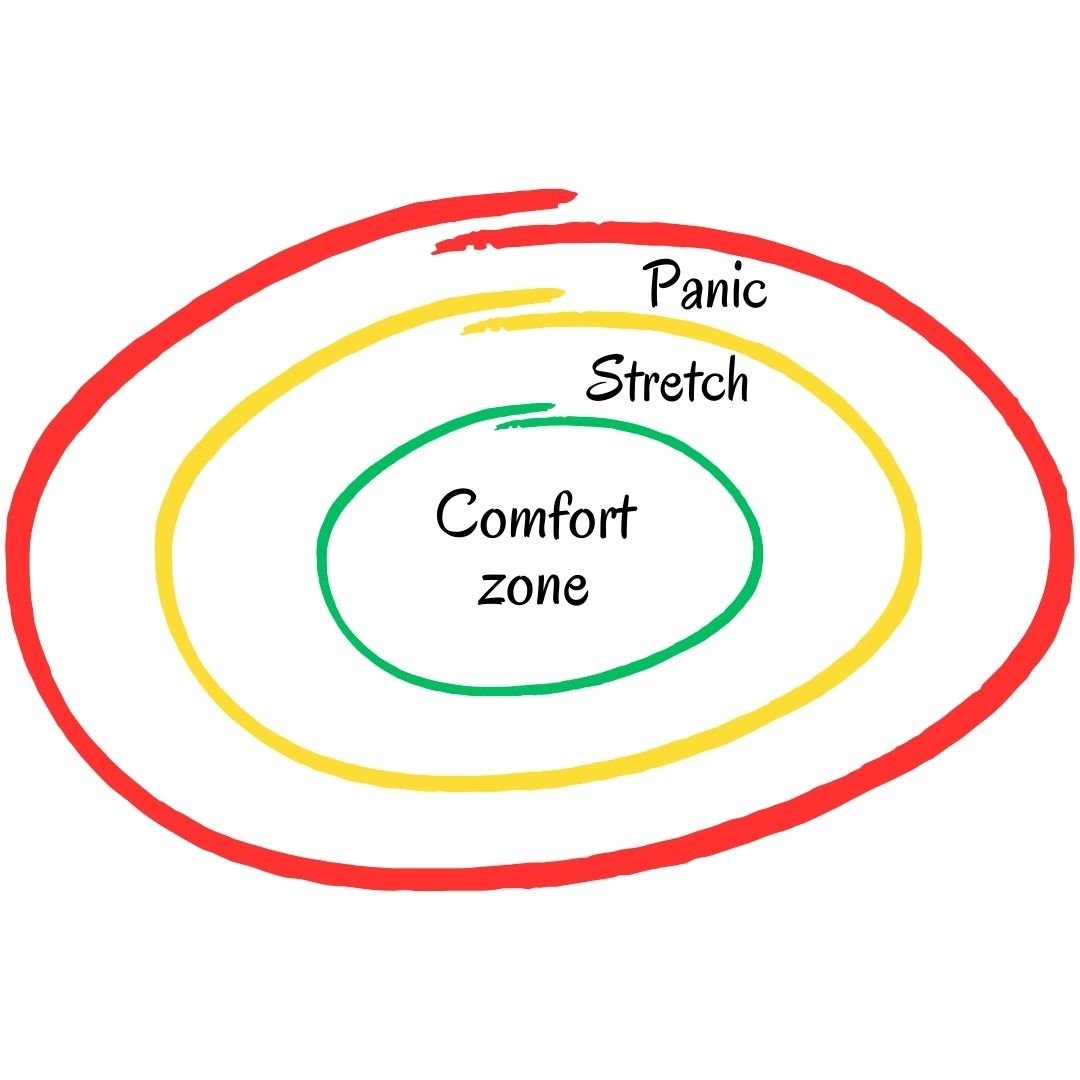
Please, stop trying to empower women
Women don't need empowerment; We need a system that does not discriminate against us.
Let's stop advising women to 'be more confident', 'speak up more', or 'negotiate harder." Instead, let's demand that workplaces, policies, and societal structures evolve—because that is where the real issue lies.
Enough with the patronising narratives. It's time to address the real problem.

The Manager as a Coach: A Leadership Essential or Just Another Trend?
In 2008, I delivered my first Manager as a Coach training. At the time, coaching in leadership was gaining momentum, and I fully expected that, 17 years later, it would have become the norm. Yet, many organisations still struggle to grasp what it truly means and why it’s a vital skill for managers.

Why Generic Approaches Are Killing Your Learning & Development Programme
While the appeal of a standardised, easy-to-implement programme is undeniable, the long-term costs—ranging from disengaged employees to a stagnating business—are too great to ignore. Tailoring learning experiences may require more effort upfront, but it is a critical step towards cultivating a vibrant, responsive, and truly developmental workplace.

Igniting Learning and Development through Dynamic Approaches for Personal Engagement and Growth
Delivering a group programme doesn’t mean everyone must learn in the same way. By recognising and embracing the diversity in learning styles, you can create an environment that not only disseminates information effectively but also honours the unique way each person processes and applies that knowledge

The Monolithic View on Leadership is Outdated and Unfit for Today’s Dynamic Workforce
The outdated, uniform approach to leadership simply cannot keep pace with the demands of today’s dynamic work environment. The most compelling leaders are those who cultivate self-awareness, align their leadership with their inherent strengths, and inspire their employees to discover and utilise their own. Embracing this modern, flexible model of leadership ultimately creates a more innovative, engaged, and resilient workforce—one that is well-equipped to meet the challenges of the future.

The Biggest Mistake You Can Make is Treat All Employees the Same
Treating all employees the same might seem equitable on the surface, but it ignores the diverse ways in which people derive motivation and satisfaction. By recognising that different temperaments require different approaches—whether through varied feedback, flexible work arrangements, or personalised career development—managers can foster a culture that not only values diversity but also drives success.

Case study: Leadership Coaching
Many years ago in my coaching practice in London, I had a client who was the Financial Director of a multibillion international company. He came to me for leadership coaching. Specifically, he wanted to become a more high-handed leader; in other words stricter and more authoritarian. “I want to be be like x” he said, referring to another director in his company.

The Illusion of Success
Success is an inherently subjective concept, yet most societies in the West often promote a monolithic view rooted in material wealth, career advancement, and societal recognition.

The most potent employee motivational tool
Motivation is a hot topic in the circles of business and executive coaching. Personally, it’s a topic I’ve been fascinated with since my MBA days 25 years ago, when the most phenomenal marketing professor at The George Washington University, Dr Sal Divita, introduced me to personality types.

Τι κοινό έχει ο Φειδίας με τον Τραμπ & τον Μπόρις;
Πέραν των πολιτικών αναλύσεων γύρω απο το "φαινόμενο Φειδίας", με ενδιέφερε να απαντήσω την ερώτηση: Ποια ιδιοσυγκρασία έχει ο Φειδίας που του έδωσε την αυτοπεποίθηση να βάλει υποψηφιότητα και να κάνει μια επιτυχιμένη καμπάνια βασισμένη στο ότι είναι έξω από το χορό του κατεστημένου και όπως δήλωσε ο ίδιος : «δεν ξέρω πολλά από πολιτικά, ούτε από την Ευρώπη».

Οι Τέσσερις Βασικοί Τύποι Ανθρώπινης Συμπεριφοράς
Η ιδιοσυγκρασία είναι μια διαμόρφωση παρατηρήσιμων χαρακτηριστικών προσωπικότητας, όπως συνήθειες επικοινωνίας, πρότυπα δράσης και σύνολα χαρακτηριστικών στάσεων, αξιών και ταλέντων. Περιλαμβάνει επίσης τις προσωπικές ανάγκες, τα είδη των συνεισφορών που κάνουν τα άτομα στο χώρο εργασίας και τους ρόλους που διαδραματίζουν στην κοινωνία.

Why I almost quit coaching
Have you ever started something with passion and deep belief, only to feel disappointed and disillusioned further down the line? Perhaps, it was a job, a relationship, a big project that felt off after a while. Sometimes the solution is to leave it behind. Other times the solution is to reshape it into something you can believe in again.

Why positivity doesn’t work and what to do instead
When I started coaching, fifteen years ago, positive thinking was in full throttle. I cringe when I think about all the positivity clichés I used with clients, friends and family whenever they tried to share a negative thought, feeling or experience. “BUT don’t dwell on things, look at the bright side…” I would jump in trying to recruit them to the relentless focusing on positive thinking.

What is the difference between Personality and Temperament
Personality, character and temperament are often used interchangeably, but they refer to different aspects of an individual. Understanding the differences can provide valuable insights into human behaviour and development.

Are intentions preferable to goals?
While goals certainly have their time and place, the cultivation of intentions can lead to a more balanced and fulfilling approach to personal development. By integrating both into our lives, we can harness the motivational power of goals while cultivating a deeper, more meaningful connection to our actions through intentions.
How goals can trip us up
Goals play a crucial role in driving our motivation and providing a sense of direction in life. However, it's important to recognise that goals, if not approached thoughtfully, can sometimes trip us up. Here are a few ways in which goals can have unintended consequences:

Understanding the difference between goals & intentions
Setting goals and intentions are both important for personal growth and achievement, but they are distinct concepts that differ in their approach and mindset.

A practical and holistic tool for setting goals
There are a lot of statements that coaches use, which I don’t agree with. One of them is “if your goals don’t scare you, they are not big enough.” This line of thinking tries to convince us that we have to set huge goals and aim at massive achievements otherwise we shouldn’t even bother. But why should we put ourselves in a state of fear and panic? This is very “old school” approach and reminiscent of how a lot of us grew up at home and how we were educated at school: with threats and punishments.

Why Keirsey is the most utilised tool for Leadership Development
The Keirsey Temperament Sorter, based on the work of psychologist David Keirsey, is a widely utilised tool for leadership development at leading organisations around the world including Fortune 500 and Global 1000 companies. This is due to its effectiveness in understanding and harnessing individual and team dynamics. In working with thousands of individuals, leaders and teams for more than seven decades, Keirsey has emerged as the leader in understanding people better than anybody else.
